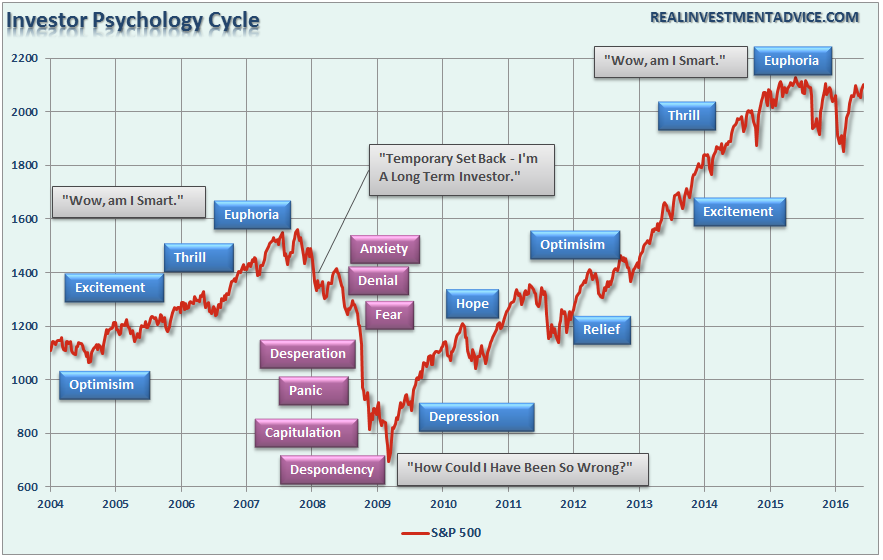This week Dalbar released its annual study of investor behaviour. According to the study, in 2015, the S&P 500 index of US large cap stocks returned +1.38%. But the average investor lost money. The average return earned by end investors based on when funds were invested was -2.28%. Over the last 20 years the S&P 500 earned an average return of +8.2% while investors earned only +4.7%. Clearly the market is a great investment compounding machine and a big friend – where are people going wrong? Who is the enemy here?
Enemy # 1 = Fees
Enemy # 2 = Investor behaviour
We invest in stocks, bonds and other asset classes in order to build wealth. We defer spending and consumption today in order to have spending power in the future. We are willing to put our invested money at risk in order to fight off the impact of inflation and to earn a positive return. Returns compounded over time can have an incredibly positive impact on wealth. Even Einstein was enamored with the power of compound interest:
“Compound interest is the eighth wonder of the world. He who understands it, earns it … he who doesn’t … pays it.”
The wonderful mechanism by which we can make this happen very effectively and efficiently is called the market and over long periods of time the market tends to reward those patient investors with returns commensurate with the risk they take.
Trouble gets in the way of this process when we interfere with the market’s ability to do it’s job.
To begin with, we get fearful and greedy. We think we can outsmart the market by trying to get ahead of the market’s ups and downs, buying to ride swooping updrafts and pulling the rip-cord before plunges. In practice people aren’t really capable of doing this effectively. We’re just not hard-wired psychologically to deal with the volatility. The following chart from realinvestmentadvice.com illustrates quite well what they term the “Investor Psychology Cycle”:
The impact of bad behaviour on wealth over time can be devastating – not only being unable to resist the impulse to buy more at points of market euphoria but also selling out in a panic at market bottoms – both behaviours can be portfolio killers! The sensible thing to do is to rebalance your portfolio in a very disciplined manner which helps you take advantage of market volatility rather than being hurt by it. Sensible but very hard!
Some people deal with it by handing their money to an “expert” who claims to know how to time the market’s ups and downs. So instead of accepting the market mechanism as a perfectly acceptable and efficient way to build wealth over the long run, people pay high fees to “experts” who are not only susceptible to the same psychological pitfalls, but according to the evidence regularly fail to earn even market level returns after accounting for their fees.
The combined impact of high fees and investor behaviour is the result that Dalbar publishes year after year – it’s always the same.
The market is your friend – harnessed correctly it’s a very powerful way to build wealth – just ask Einstein! High fees and poor behaviour (sometimes your own!) are enemies of which to be wary!


